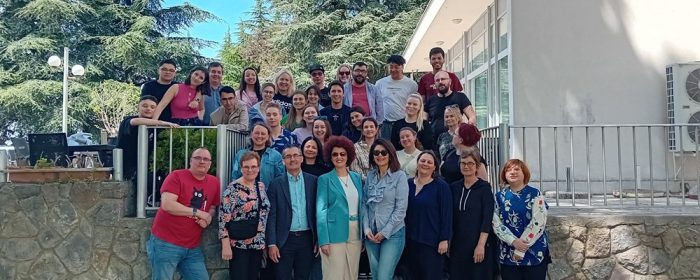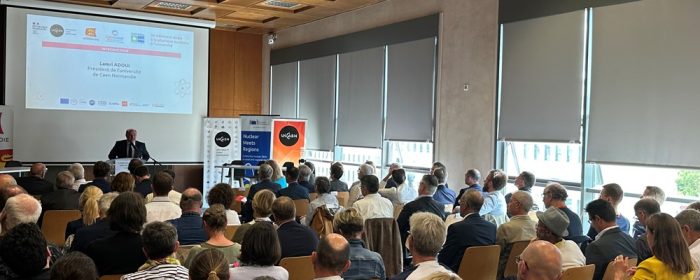The Label DD&RS – Développement Durable et Responsabilité Sociétale (sustainable development and social responsibility) rewards higher education institutions committed to these two principles. To obtain the Label DD&RS, it is necessary to demonstrate that the impulse is real, that it is integrated in the operation of the institution at all levels, and that it is structured to last in the long term. The University of Caen has just been awarded this label for a period of 4 years.
A very positive assessment
The label is built around 5 lines (1. Strategy and governance; 2. Education and training; 3. Research and innovation; 4. Environmental management; 5. Social policy), into which are integrated 18 strategic variables. To obtain it, it is necessary to validate at least 9 variables with a score of 3 or higher (on a scale comprising five evaluation levels: 1. Awareness; 2. Initiation; 3. Compliance; 4. Mastery; 5. Exemplarity).
The University of Caen Normandie validated 13 out of 18 variables which is a very good result for a multi-disciplinary and multi-site university (13 campuses and university sites spread out over 3 of Normandy’s departments). The jury also praised the high quality and thoroughness of the university’s application and its track record.
The strengths of the UNICAEN’s application
Without being exhaustive, some of the strengths of the UNICAEN application deserve to be highlighted.
Strategy and governance
In terms of strategy and governance, it appeared that the structuring and integration of the mission ensured that the cross-functional approach required to address DD&RS issues was considered. Territorial cooperation, which is highly developed at the University of Caen Normandie, was also noted as a strength.
Research and innovation
The section on research and innovation highlighted the work carried out in recent years on open science, science with and for society (label SAPS – Science avec et pour la société – Science with and for society) and, more recently, scientific integrity.
Environmental management
The environmental management section highlighted the work carried out over the past 10 years on the renovation of our facilities, energy saving and greenhouse gas emissions, not to mention our actions in favour of biodiversity and waste management.
Social policy
Last but not least, the various initiatives in favour of inclusion and diversity were highlighted in the social policy section, particularly those relating to the quality of student life and support for people with disabilities.



